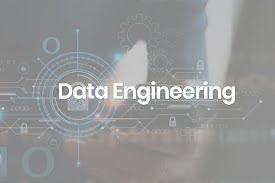If you like coding, database work, and system automation, you can think about using data engineering as your future calling Data Engineering Jobs. This quiet work lies beneath all the work from business intelligence and machine learning through analytics and recommendations. And do you know what? Versatile data engineers are sought after all across—from finance through healthcare through entertainment Data Engineering Jobshttps://bestworldjob.com.

Data Engineering jobs
What is Data Engineering? Data Engineer Job Description and Career Overview
With more companies handling larger collections of information, data engineers are becoming increasingly essential in the tech industry. They build systems that collect, process, and transform raw data into usable formats for business analysts and data scientists. If you enjoy solving puzzles, writing code, and working with data, data engineering could be a perfect fit Data Engineering Jobshttps://www.remotejobs.io.
IBM Data Engineering
IBM offers a popular Data Engineering Professional Certificate, covering essential skills such as SQL, Python, ETL (Extract, Transform, Load), data warehousing, and big data tools. This beginner-friendly course helps build foundational knowledge in the field of data engineering.
What is a Data Engineer?
Data engineers design and maintain systems that gather, process, and store data. Their responsibilities typically include:
- Constructing pipelines for processing and transforming raw data
- Creating data warehouses or lakes
- Writing code in Python, SQL, or Scala
- Collaborating with data scientists and analysts
- Ensuring data quality and integrity

What’s the Difference Between a Data Engineer and a Data Analyst?
Data analysts focus on interpreting and visualizing data—often using tools like Excel, SQL, or dashboards. Data engineers, on the other hand, build the systems that make this analysis possible. Think of data engineers as the architects and builders, and data analysts as the storytellers who use the data structures Data Engineering Jobs
Why Should You Become a Data Engineer?
Data engineering offers excellent career opportunities across nearly every industry. With rising demand for professionals who can manage and process data, the field combines technical skills with real-world impact Data Engineering Jobs.
Data Engineer: Employment Prospects and Pay
The job outlook for data engineers is strong. In the U.S., entry-level salaries typically range from $85,000 to $100,000 per year, while experienced professionals can earn $130,000 or more. Specializations in cloud platforms or big data can further increase earning potential Data Engineering Jobs.

Data Engineer Career Path
Most data engineers begin in junior roles and move into more advanced positions such as:
- Senior Data Engineer
- Data Architect
- Machine Learning Engineer
- Engineering Manager
- Director of Data Engineering
How Do I Become a Data Engineer?
Here’s a step-by-step path to help you get started:
1. Learn Core Data Engineering Skills
Start with hands-on skills like:
- Programming (Python, Java, or Scala)
- SQL and database administration
- Data pipelines and ETL tools
- Cloud platforms (AWS, Azure, GCP)
- Big data technologies like Apache Spark and Hadoop
Meta Database Engineer
Meta offers specialized programs in database engineering and infrastructure, which are foundational to many data engineering roles. These programs help prepare you for positions at top tech companies.

2. Get Certified
Certifications validate your skills and enhance your resume for Data Engineering Jobs . Consider:
- Google Professional Data Engineer
- AWS Certified Data Analytics
- Microsoft Azure Data Engineer
- IBM Data Engineering Certificate
3. Create a Portfolio of Data Engineering Projects
Hands-on experience is critical. Build and showcase Data Engineering Jobs projects such as:
- Data pipelines using Apache Airflow
- ETL processes using real-world datasets
- Cloud data architecture on AWS or GCP
- A personal data warehouse using Snowflake or BigQuery
4. Start at Entry Level
Look for roles like:
- Junior Data Engineer
- Data Engineering Intern
- Big Data Engineer
Gain experience and grow into senior-level positions over timeData Engineering Jobs.
DeepLearning.AI Data Engineering
DeepLearning.AI offers a Data Engineering Specialization focused on building scalable, real-world data pipelines, working with cloud tools, and mastering best practices for production systems Data Engineering Jobs.
Do You Need a Degree to Be a Data Engineer?
Not necessarily. Many data engineers are self-taught or have transitioned from other fields. While a degree in computer science, data science, or engineering can be helpful, projects and certifications can be just as valuable—especially if you’re switching careers or don’t have a technical background.
Learn Data Engineering Skills Through Coursera
Coursera gives you access to top-notch data engineering courses from industry leaders like Google, IBM, Meta, and DeepLearning.AI. Learn at your own pace and gain hands-on experience to launch or accelerate your data engineering career.

Frequently Asked Questions (FAQs)
What does the work of a data engineer entail?
A data engineer builds, deploys, and maintains systems that collect, store, and process data. They ensure that data is clean, trustworthy, and readily available for analysis.
What are the qualifications for a data engineer?
Important skills Data Engineering Jobs include:
- Programming (Python, SQL, Java, or Scala)
- Data modeling and database administration
- Cloud computing (AWS, Azure, GCP)
- Development of data pipelines and ETL processes
- Big data technologies like Hadoop and Spark
Do I need a computer science degree in order to be a data engineer?
Not necessarily. While a degree can be helpful, employers often value hands-on experience, real projects, and certifications more than formal education.
How difficult is learning about data engineering?
It can be challenging, especially for beginners with no background in coding or data. However, with consistent practice and the use of online resources or bootcamps, anyone can learn it.
What’s the difference between data science and data engineering?
Data engineers focus on building systems and data infrastructure. Data scientists use that infrastructure to develop models and extract insights. Both roles work closely together in most organizations.
How long will it take someone to become a data engineer?
If you’re starting from scratch, it may take 6–12 months or longer through self-study or a bootcamp. If you already have experience in IT or software development, the learning curve may be shorter.
Do certifications pay off in data engineering?
Yes. Certifications from providers such as Google, AWS, IBM, or Microsoft serve as proof of skill and can significantly boost your job prospects.
What tools do data engineers use?
Common tools include:
- Programming languages: SQL, Python
- Workflow tools: Apache Airflow
- Big data frameworks: Apache Spark, Hadoop
- Messaging systems: Kafka
- Cloud data warehouses: Snowflake, BigQuery
- DevOps tools: Docker, Kubernetes
- Cloud platforms: AWS, GCP, Azure
What industries need data engineers?
Data engineers are in demand across many sectors, including:
- Technology
- Healthcare
- Finance
- E-commerce
- Education
- Logistics
- Media
Can you become a data engineer with zero experience?
Yes, absolutely. If you’re eager to learn, you can start from scratch. Build small projects, earn certifications, and apply for internships or entry-level roles to break into the field.
Conclusion
Data engineering is a rapidly growing, high-impact profession that offers opportunities in numerous industries. With the proper skills, credentials, and practical experience, anyone can begin a successful career in this field, no matter their background.